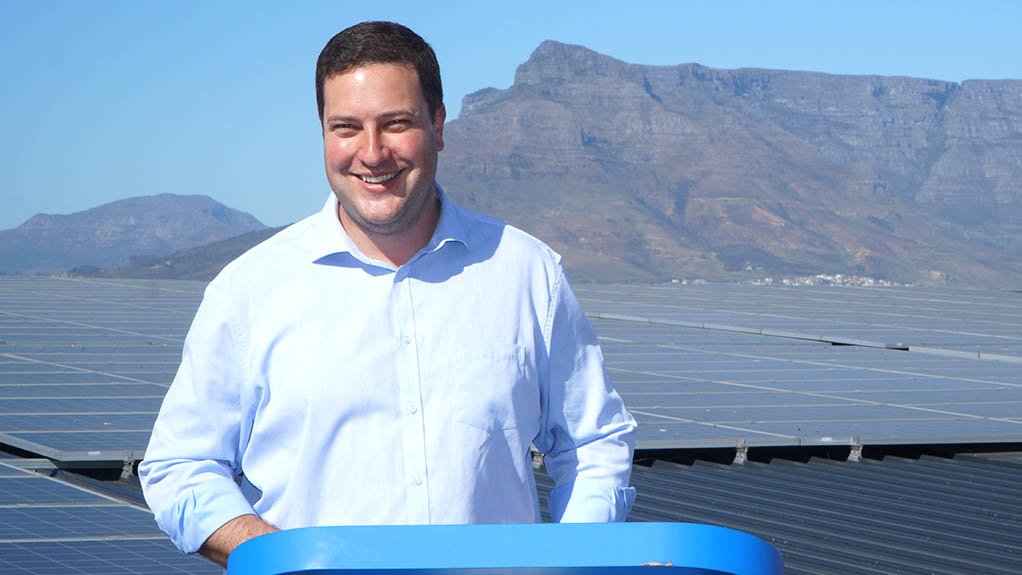A 40% drop in rainfall could be a reality for Cape Town in the coming decades, based on cities that are experiencing similar conditions.
In an attempt to keep taps running amid climate change, the City of Cape Town is planning to add 300-million litres of water per day from alternative sources, such as groundwater extraction and water reuse.
Capetonians use around 904-million litres of water daily.
This week, Mayor Geordin Hill-Lewis opened the City's International Water Reuse Conference, which mayors and officials from seven cities attended.
Water reuse is expected to add around 7% to Cape Town's total bulk potable water supply by 2040. Hill-Lewis said a state-of-the-art New Water Scheme was being built at the Faure Water Treatment Plant and Reservoir.
It will see wastewater at Zandvliet Wastewater Treatment Works being treated and purified to drinking water standards.
The water will then be blended with dam water to augment the water that feeds the existing Faure Water Treatment plant before it is fed into the City's water supply across all areas.
"In line with our extensive protocols, this water will be continuously tested, using advanced monitoring that can validate the performance of any part of the treatment process in real-time, along with routine daily sampling, as well as regular sampling by independent laboratories, to ensure drinking water standards are met at all times," Hill-Lewis said.
The mayor added that "Cape Town is, and will always be, a water-stressed city", which prompted the development of a strategy for water security that goes beyond the collection of rainwater in the seven dams that supply the metro.
"Part of this plan of ours is the New Water Programme, which will see us turn to non-surface water sources such as seawater desalination, groundwater extraction from two major aquifers, and water reuse to augment our city's supply," he said.
Among the projects in the pipeline is a permanent desalination plant, which is expected to produce between 50 and 70-million litres daily. The City plans to complete it by February 2030.
Hill-Lewis drew on the experience of the City of Perth in Australia, which has climate conditions similar to Cape Town. He said Perth had experienced a nearly 40% permanent reduction in rainfall.
"They were prepared for that because because they started early and made the necessary investments," Hill-Lewis said.
"All indications are that Cape Town will experience a similar permanent decline in rainfall over the coming decades."
The mayor said the city faced the same challenges as many municipalities in Africa, Australia, Europe and Asia.
"I can assure you that our water reuse project here in Cape Town will remain one of this administration's top priorities over the coming years. It is a critical part of our broader New Water Programme – which aims to add 300-million litres of water per day from new sources by 2030 – and it is a project in which we have already invested a considerable amount of budget, time and resources," he said.
The introduction of the programme comes five years after Cape Town residents, in the grip of Day Zero fears, were restricted to water usage of 50 litres per day to prevent taps from running dry.
"The big lesson was that, no matter how well prepared you thought you were, and how well invested you are in the collection of rain-based surface water, when you encounter a once-in-a-generation drought – or as we did, a once-in-400-years drought – that won't be enough," Hill-Lewis said.
Mayco member for water and sanitation Zahid Badroodien said climate change and an increasing population meant the risk of another severe water crisis was much higher.
"In the face of climate uncertainty, the City of Cape Town cannot afford to be a passive observer. We must be an active participant in shaping our resilient city. Our approach involves various programs aimed at safeguarding our water future," he said.
Badroodien said that over the next three years, around R10-billion of the City’s R30-billion capital expenditure plan will be invested in water and sanitation infrastructure.
"We are planning to invest about R4.7-billion to bring about 105-million litres of groundwater a day into our drinking supply by 2036. The Table Mountain Group Aquifer has already delivered its first water in 2020, and the first groundwater to be injected into the supply network from the Cape Flats Aquifer will be achieved this year," he added.
Badroodien said the City was partnering with The Nature Conservancy to remove invasive vegetation, which was expected to free up around 55 billion litres of water.
EMAIL THIS ARTICLE SAVE THIS ARTICLE
To subscribe email subscriptions@creamermedia.co.za or click here
To advertise email advertising@creamermedia.co.za or click here











